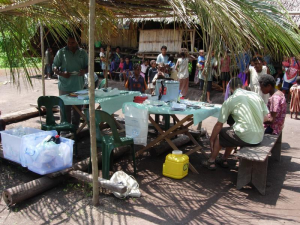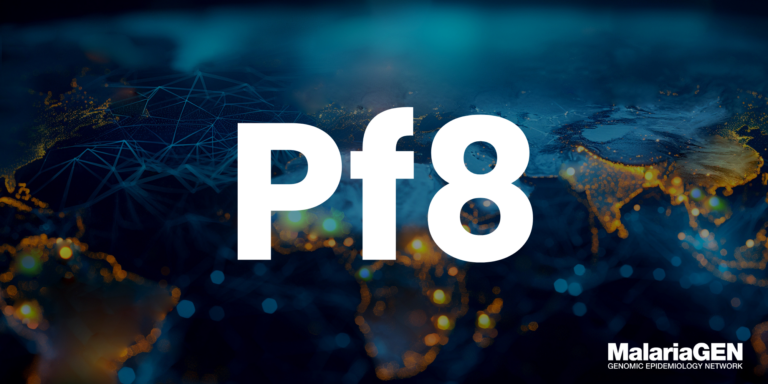
At the Papua New Guinea Institute for Medical Research we are contributing archived and new matched cases and controls for Consortial Project 1 and family trios for Consortial Project 3. We are based in the Entomology Unit in Madang and work closely with the Modilon General Hospital where the patients are recruited and samples are collected. We have faced many challenges during the project including setting up the necessary infrastructure, obtaining informed consent and even reaching rural clinics.
Deteriorating Health Services and Infrastructure
In Papua New Guinea we face a number of challenges due to deteriorating health services and infrastructure. For example, the closing of the Children's Outpatient Department at the Modilon Hospital for refurbishment slowed the recruitment of severe malaria cases. In rural areas this has also created conflicting priorities for the paediatricians and fieldworkers visiting rural areas. For example, during one clinic a child became so sick that the session had to be cancelled in order for the team to transport the child to hospital. The bad quality of many rural roads, combined with rugged terrain, has also made travelling to rural clinics time consuming and difficult especially when levels rise in the many rivers we have had to ford.
Setting up Necessary Infrastructure and Training Personnel
As a result of the MalariaGEN project we have been able to renovate 3 rooms in an empty building near the paediatric ward of the Modilon General Hospital. The new set-up includes an office and general laboratory area (light microscopy and sample separations), a specialized lab room (to house microbiology, haematology and dry chemistry) and a storage room. Besides the physical infrastructure we have recruited a well-trained team: 1 physician (Dr. Moses Laman), 1 health extension officer, 5 nurses and a full-time driver.
Obtaining Informed Consent
Obtaining valid informed consent from local communities has also been complex. Explaining scientific concepts has been difficult due to low literacy rates, poor access to education and problems with translation (there are 800 distinct languages in Papua New Guinea). As a result we have developed a process of continuous engagement with communities. This starts by first making contact with the community through local leaders. We then carry out carry out awareness raising activities in local languages to inform communities about the research institute, the work it carries out and how this will bring health benefits to local people.


